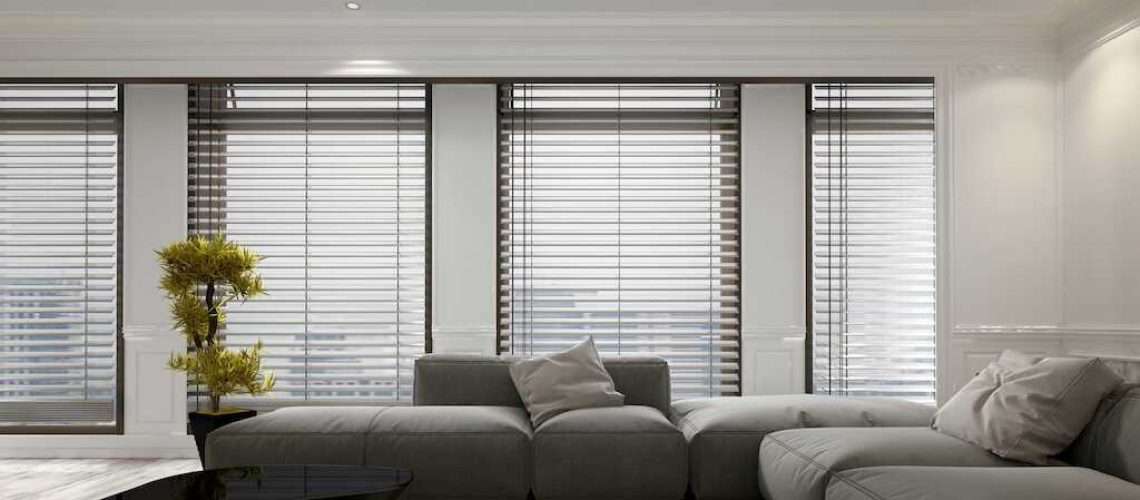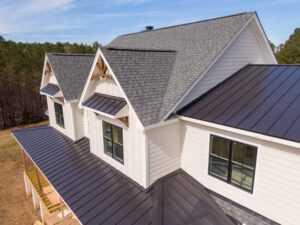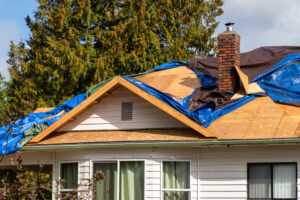According to the U.S. Department of Energy energy-efficient windows can save you up to 30% on your home’s heating energy? As a result, you keep $126-$465 of your hard-earned money in your pocket each year.
And not only that, but energy-efficient windows help protect the environment. How? By reducing the demand for energy, which in turn reduces greenhouse gas emissions and air pollution.
All of that from some new windows! But with so many options on the market, how do you choose energy-efficient windows that are right for your home? Keep reading to find out.
Rating Systems
When it comes to energy-efficient windows, there are two main rating systems you need to be aware of:
- Energy Star
- National Fenestration Rating Council (NFRC)
Energy Star is a joint program of the U.S. Department of Energy and the Environmental Protection Agency. It was created to help consumers save money and protect the environment through energy-efficient products and practices.
All Energy Star products must meet or exceed energy efficiency guidelines set by the Department of Energy. In order to earn the Energy Star label, a window must go through a rigorous testing process conducted by an independent certified laboratory.
The National Fenestration Rating Council is a nonprofit organization that develops energy performance ratings for windows, doors, skylights, and attachment products. These ratings are based on energy performance tests that are conducted according to strict standard methods.
The NFRC label provides energy performance ratings in the following categories:
- U-factor
- Solar heat gain coefficient (SHGC)
- Visible transmittance (VT)
- Air leakage (AL)
U-factor is a measure of a window’s heat loss or heat gain. The lower the U-factor, the more energy-efficient the window. SHGC is a measure of a window’s ability to block heat from the sun. The lower the SHGC, the less solar heat transmitted through the window.
VT is a measure of how much light passes through a window. The higher the VT, the more light passing through. AL is a measure of how much air leaks through a window. The lower the AL, the less air that leaks through.
These ratings provide a good starting point for choosing the most energy-efficient windows, but there are other factors to consider as well.
Type of Window
The type of window you choose will also affect energy efficiency. The three most common types of windows are single-hung, double-hung, and casement.
Single-hung windows have a lower sash that opens and an upper sash that remains fixed. Double-hung windows have two sashes that both open and close. Casement windows have a hinged sash that opens outward like a door.
Generally speaking, casement windows are the most energy-efficient followed by double-hung and then single-hung. But it’s important to consider the specific features of each type of window before making a decision.
When it comes to energy efficiency windows, the following features are important to look for:
- Low-emissivity (low-e) glass
- Multiple panes of glass
- Gas fill between panes of glass
- Argon or krypton gas fill
Low-e coatings are thin, invisible layers of metal oxide that are applied to the surface of the glass. These coatings help reduce the amount of heat loss through the window by reflecting heat back into the room. Low-e coatings are most effective when used in combination with multiple panes of glass and gas fill.
Multiple panes of glass create an insulating barrier that helps prevent heat loss.
A gas fill is a layer of inert gas that is sealed between the panes of glass. Argon and krypton gases are often used because they have a low thermal conductivity, which means they reduce heat transfer.
Frame Material
The material of the window frame also affects energy efficiency. The three most common materials used for window frames are wood, vinyl, and aluminum.
Wood is a natural insulator that helps reduce heat loss. It can be painted or stained to match the look of your home.
Vinyl is a synthetic material that is made from PVC (polyvinyl chloride). It is a durable, low-maintenance material that is available in a variety of colors.
Aluminum is a lightweight metal that is often used in commercial applications. It conducts heat and cold well, so it is not as energy-efficient as wood or vinyl.
When it comes to energy efficiency, the following features are important to look for:
- Insulated frames
- Foam-filled frames
- Vinyl or aluminum cladding
- Vented frames
Insulated frames help reduce heat loss by providing an additional layer of insulation. Foam-filled frames are filled with insulating foam that helps reduce heat transfer.
Vinyl or aluminum cladding helps protect the frame from weather damage and also reduces heat transfer. Vented frames have vents that allow air to circulate, which helps prevent condensation.
Warranty and Service
Finally, when choosing energy-efficient windows, it’s important to consider the warranty and service.
Look for a company that offers a good warranty and is willing to stand behind its product. Also, make sure the company you choose has a good reputation for customer service.
The best way to find a reputable window company is to ask around or check online reviews. Once you’ve found a few companies that meet your needs, be sure to compare prices before making a decision.
Install the Best Energy-Efficient Windows
When it comes to energy efficiency, windows are one of the biggest sources of heat loss in your home. By choosing energy-efficient windows, you can reduce your energy usage and save money on your utility bills.
But not all energy-efficient windows are created equal. Choose windows that are right for your climate and your home’s energy needs.
If you’re ready to start saving energy and money, call the window installation pros from Freeman Exteriors. We can help you choose energy-efficient windows that fit your budget and your energy needs. Request an energy-efficient window estimate today.




